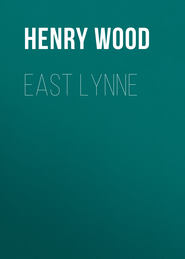По всем вопросам обращайтесь на: info@litportal.ru
(©) 2003-2024.
✖
Johnny Ludlow, Fifth Series
Настройки чтения
Размер шрифта
Высота строк
Поля
“Just as much as it is mine, madam. His real name is Fennel; but he has found it convenient to drop that on occasion.”
Now it was a curious fact that Nancy did not hear the name which the stranger had given as the true one. Her attention was diverted by some men who were working at the mud in the harbour, for it was low water, and who were loudly disputing together. Nancy had moved to the side of the pier to look down at them.
“Is he a swindler, that Mr. Dangerfield?” asked she, half-turning her head to speak. But the stranger did not answer.
As to Lavinia, the avowal had struck her speechless. She glanced at Captain Fennel. He had his back to them, and stood immovable, apparently unconcerned, possibly not having heard. A thought struck her—and frightened her.
“Do you know that Mr. Dangerfield yourself?” she asked the stranger, in a tone of indifference.
“No, I do not,” he said; “but there’s a man coming over in yonder boat who does.”
He pointed over his shoulder at the sea as he spoke. Lavinia glanced quickly in the same direction.
“In yonder boat?” she repeated vaguely.
“I mean the London boat, which is on its way here, and will get in this evening,” he explained.
“Oh, of course,” said Lavinia, as if her wits had been wool-gathering.
The young man took out his watch and looked at it. Then he rose, lifted his hat, and, with a general good-morning, walked quickly down the pier.
Nancy was still at the side of the pier, looking down at the men. Captain Fennel put up his glasses and sat down beside Lavinia, his impassive face still as usual.
“I wonder who that man is?” he cried, watching the footsteps of the retreating stranger.
“Did you hear what he said?” asked Lavinia, dropping her voice.
“Yes. Had Nancy not been here, I should have given him a taste of my mind; but she hates even the semblance of a quarrel. He had no right to say what he did.”
“What could it have meant?” murmured Lavinia.
“It meant my brother, I expect,” said Captain Fennel savagely, and, as Lavinia thought, with every appearance of truth. “But he has never been at Sainteville, so far as I know; the fellow is mistaken in that.”
“Does he pass under the name of Dangerfield?”
“Possibly. This is the first I’ve heard of it. He is an extravagant man, often in embarrassment from debt. There’s nothing worse against him.”
He did not say more; neither did Lavinia. They sat on in silence. The tall figure in the Scotch plaid disappeared from sight; the men in the harbour kept on disputing.
“How long are you going to stay here?” asked Nancy, turning towards her husband.
“I’m ready to go now,” he answered. And giving his arm to Nancy, they walked down the pier together.
Never a word to Lavinia; never a question put by him or by Nancy, if only to say, “Are you not coming with us?” It was ever so now. Nancy, absorbed in her husband, neglected her sister.
Lavinia sighed. She sat on a little while longer, and then took her departure.
The shoe-shop on the port was opposite the place in the harbour where the London steamers were generally moored. The one now there was taking in cargo. As Lavinia was turning into the shop for her parasol, she heard a stentorian English voice call out to a man who was superintending the work in his shirt-sleeves: “At what hour does this boat leave to-night?”
“At eight o’clock, sir,” was the answer. “Eight sharp; we want to get away with the first o’ the tide.”
From Miss Lavinia Preen’s Diary
September 22nd.—The town clocks have just struck eight, and I could almost fancy that I hear the faint sound of the boat steaming down the harbour in the dark night, carrying Nancy away with it, and carrying him. However, that is fancy and nothing else, for the sound could not penetrate to me here.
Perhaps it surprised me, perhaps it did not, when Nancy came to me this afternoon as I was sitting in my bedroom reading Scott’s “Legend of Montrose,” which Mary Carimon had lent me from her little stock of English books, and said she and Captain Fennel were going to London that night by the boat. He had received a letter, he told her, calling him thither. He might tell Nancy that if he liked, but it would not do for me. He is going, I can only believe, in consequence of what that gentleman in the shepherd’s plaid said on the pier to-day. Can it be that the “Mr. Dangerfield” spoken of applies to Edwin Fennel himself and not to his brother? Is he finding himself in some dangerous strait, and is running away from the individual coming over in the approaching boat, who personally knows Mr. Dangerfield? “Can you lend me a five-pound note, Lavinia?” Nancy went on, when she had told me the news; “lend it to myself, I mean. I will repay you when I receive my next quarter’s income, which is due, you know, in a few days.” I chanced to have a five-pound note by me in my own private store, and I gave it her, reminding her that unless she did let me have it again, it would be so much less in hand to meet expenses with, and that I had found difficulty enough in the past quarter. “On the other hand,” said Nancy, “if I and Edwin stay away a week or two, you will be spared our housekeeping; and when our money comes, Lavinia, you can open my letter and repay yourself if I am not here. I don’t at all know where we are going to stay,” she said, in answer to my question. “I was beginning to ask Edwin just now in the other room, but he was busy packing his portmanteau, and told me not to bother him.”
And so, there it is: they are gone, and I am left here all alone.
I wonder whether any Mr. Dangerfield has been at Sainteville? I think we should have heard the name. Why, that is the door-bell! I must go and answer it.
It was Charley Palliser. He had come with a message from Major and Mrs. Smith. They are going to Drecques to-morrow morning by the eleven-o’clock train with a few friends and a basket of provisions, and had sent Charley to say they would be glad of my company. “Do come, Miss Preen,” urged Charley as I hesitated; “you are all alone now, and I’m sure it must be dreadfully dull.”
“How do you know I am alone?” I asked.
“Because,” said Charley, “I have been watching the London boat out, and I saw Captain Fennel and your sister go by it. Major and Mrs. Smith were with me. It is a lovely night.”
“Wait a moment,” I said, as Charley was about to depart when I had accepted the invitation. “Do you know whether an Englishman named Dangerfield is living here?”
“Don’t think there is; I have not met with him,” said Charley. “Why, Miss Preen?”
“Oh, only that I was asked to-day whether I knew any one of that name,” I returned carelessly. “Good-night, Mr. Charles. Thank you for coming.”
They have invited me, finding I was left alone, and I think it very kind of them. But the Smiths are both kind-hearted people.
September 23rd.—Half-past nine o’clock, p.m. Have just returned from Drecques by the last train after spending a pleasant day. Quiet, of course, for there is not much to do at Drecques except stroll over the ruins of the old castle, or saunter about the quaint little ancient town, and go into the grand old church. It was so fine and warm that we had dinner on the grass, the people at the cottage bringing our plates and knives and forks. Later in the day we took tea indoors. In the afternoon, when all the rest were scattered about and the major sat smoking his cigar on the bench under the trees, I sat down by him to tell him what happened yesterday, and I begged him to give me his opinion. It was no betrayal of confidence, for Major Smith is better acquainted with the shady side of the Fennels than I am.
“I heard there was an English lawyer staying at the Hôtel des Princes, and that he had come here from Douai,” observed the major. “His name’s Lockett. It must have been he who spoke to you on the pier.”
“Yes, of course. Do you know, major, whether any one has stayed at Sainteville passing as Mr. Dangerfield?”
“I don’t think so,” replied the major. “Unless he has kept himself remarkably quiet.”
“Could it apply to Captain Fennel?”
“I never knew that he had gone under an assumed name. The accusation is one more likely to apply to his brother than to himself. James Fennel is unscrupulous, very incautious: notwithstanding that, I like him better than I like the other. There’s something about Edwin Fennel that repels you; at least, it does me; but one can hardly help liking James, mauvais sujet though he is,” added the speaker, pausing to flirt off the ashes of his cigar.
“The doubt pointing to Edwin Fennel in the affair is his suddenly decamping,” continued Major Smith. “It was quite impromptu, you say, Miss Preen?”
“Quite so. I feel sure he had no thought of going away in the morning; and he did not receive any letter from England later, which was the excuse he gave Nancy for departing. Rely upon it that what he heard about the Mr. Dangerfield on the pier drove him away.”
“Well, that looks suspicious, you see.”
“Oh yes, I do see it,” I answered, unable to conceal the pain I felt. “It was a bitter calamity, Major Smith, when Nancy married him.”
“I’ll make a few cautious inquiries in the town, and try to find out if there’s anything against him in secret, or if any man named Dangerfield has been in the place and got into a mess. But, indeed, I don’t altogether see that it could apply to him,” concluded the major after a pause. “One can’t well go under two names in the same town; and every one knows him as Edwin Fennel.—Here they are, some of them, coming back!” And when the wanderers were close up, they found Major Smith arguing with me about the architecture of the castle.
Ten o’clock. Time for bed. I am in no haste to go, for I don’t sleep as well as I used to.











